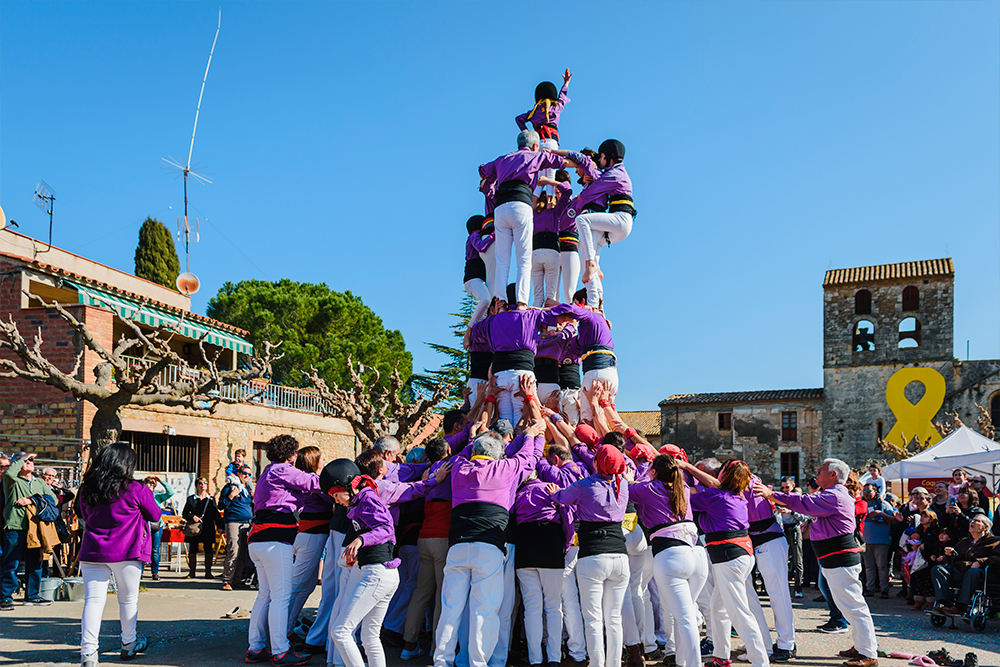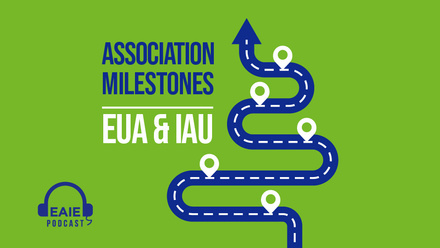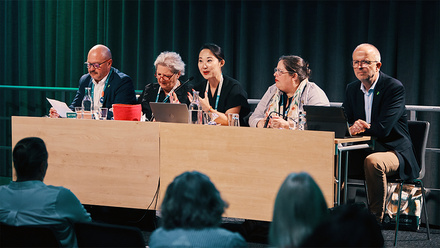SUCTI: A tale of administrative staff internationalisation

‘Once upon a time’ is the start of so many great fairy tales. Today I will also tell you a story, hopefully a good one that you can enjoy: the story of internationalising administrative staff. It’s not quite a fairy tale, but maybe one day we will tell it as one.
Once upon a time, at a mid-size university on the Mediterranean coast (my institution, Universitat Rovira i Virgili [URV]), on the occasion of an international week for all the constituents of the institution, a brave organising committee gathered for a brainstorm about the different activities they could put together for students, academics and administrative staff. It was easy enough to think of activities for our students, and a bit more challenging to think up some lectures and seminars for our academic staff. But the true challenge was figuring out what to offer our administrative staff.
In a visionary moment, we came up with the idea of offering administrators a training course on internationalisation, based on the idea that this group probably lacked information on what their own university was doing in this domain. This first course took place in 2011 and was open to both administrative and academic staff. With this first experience, we learned many things, but we could summarise our main takeaways as follows:
- We in the internationalisation office were living in a bubble, and we thought everyone else saw internationalisation as positively as we did. Well, it only took half an hour of the course for that bubble to burst.
- We cannot expect our colleagues to acquire the necessary knowledge on internationalisation and intercultural communication simply by hoping that they do so.
- Our colleagues may well perceive internationalisation as a challenge, and international students as a burden. Let’s face it – and address it, of course!
- Internationalisation puts people outside their comfort zone. Using a different language than their own, dealing with cultures that operate differently… not easy!
- Helping staff understand why it is important to internationalise our institution, as well as how to do it properly, may actually be the first steps in the right direction.
- Everyone wants to feel recognised and included in their institution’s values and vision.
Training the trainers
The first edition of the course, called ‘Internationalisation for all’, proved to be very successful. In less than ten hours, the participants who on the first day had shown the most resistance had become true agents of internationalisation.
Seeing these results, we decided to keep offering this course once a year. We improved it from one edition to the next and tailored it specifically to administrative staff. Those of us who were in the course could easily see the transformation of participants happening in front of our eyes. But we still wanted to measure this transformation somehow.
We believe that the positive results were partly thanks to a powerful guiding message: “YOU, participant, are important in the internationalisation of your institution.”
So, with the help of the URV Department of Psychology, we developed a survey to hand out to participants before and after the course. Soon the results of the survey started to show some positive trends, but we also wanted to see if this course could also work in other institutional settings. To do so, we exported the model to other institutions and decided to organise a ‘Train the Trainers’ course, so that other institutions could implement it and we could run the survey among a bigger focus group.
The Train the Trainers course took place in 2015, and participants were motivated to implement the course back at their home institutions. However, in reality it was not so easy to maintain the enthusiasm generated at the course once back home, where work and sometimes institutional resistance were eagerly waiting.
Systemic University Change Towards Internationalisation
After this, and with enough engaged partners interested to go one step further, a consortium of European partners applied for funding via the Erasmus+ Strategic Partnerships call. The SUCTI project, which stands for Systemic University Change Towards Internationalisation (as it aims at contributing to a systemic or global change coming from within institutions that will take the given institution one step further towards internationalisation) came to life in 2016 and will finish at the end of August 2019.
The SUCTI project has led to many outputs, including: a report on the in-house training available at European higher education institutions; improved training materials; three trainers trained per partner institution, who have in turn given two courses to peers at their own universities; and an evaluation of the impact of the SUCTI course on participants’ openness, intercultural competence, and knowledge of and attitudes toward internationalisation.
The results obtained have surpassed all of our expectations and will soon be available on the project website.
Course contents
It’s not rocket science, but we believe that the positive results achieved were thanks to the right combination of relevant content, interactive activities and a very necessary and powerful guiding message, which is: YOU, participant, are important in the internationalisation process of your institution.
The course content itself covers the following topics:
- Internationalisation: what is it? Basic concepts (Internationalisation at Home, internationalisation of the curriculum, etc)
- Global trends in higher education internationalisation
- Rankings: where is our institution in the rankings? What is their use?
- Internationalisation at our institution: who does what, is there a strategic plan, what is the international vision, how many students are going abroad or coming to our institution, testimonials etc
- Intercultural communication
- What can YOU do to contribute?

The key message of SUCTI is conveyed in different ways during the course, but a powerful image that we use is the human towers, or castells as they are called in Catalan. This popular tradition from the Tarragona region transmits perfectly that each and every staff member of the institution is needed in the success of a castell, the castell of internationalisation.
And like in all good stories, there are challenges that we must face, dragons that we must fight, and hopefully a happily-ever-after.






